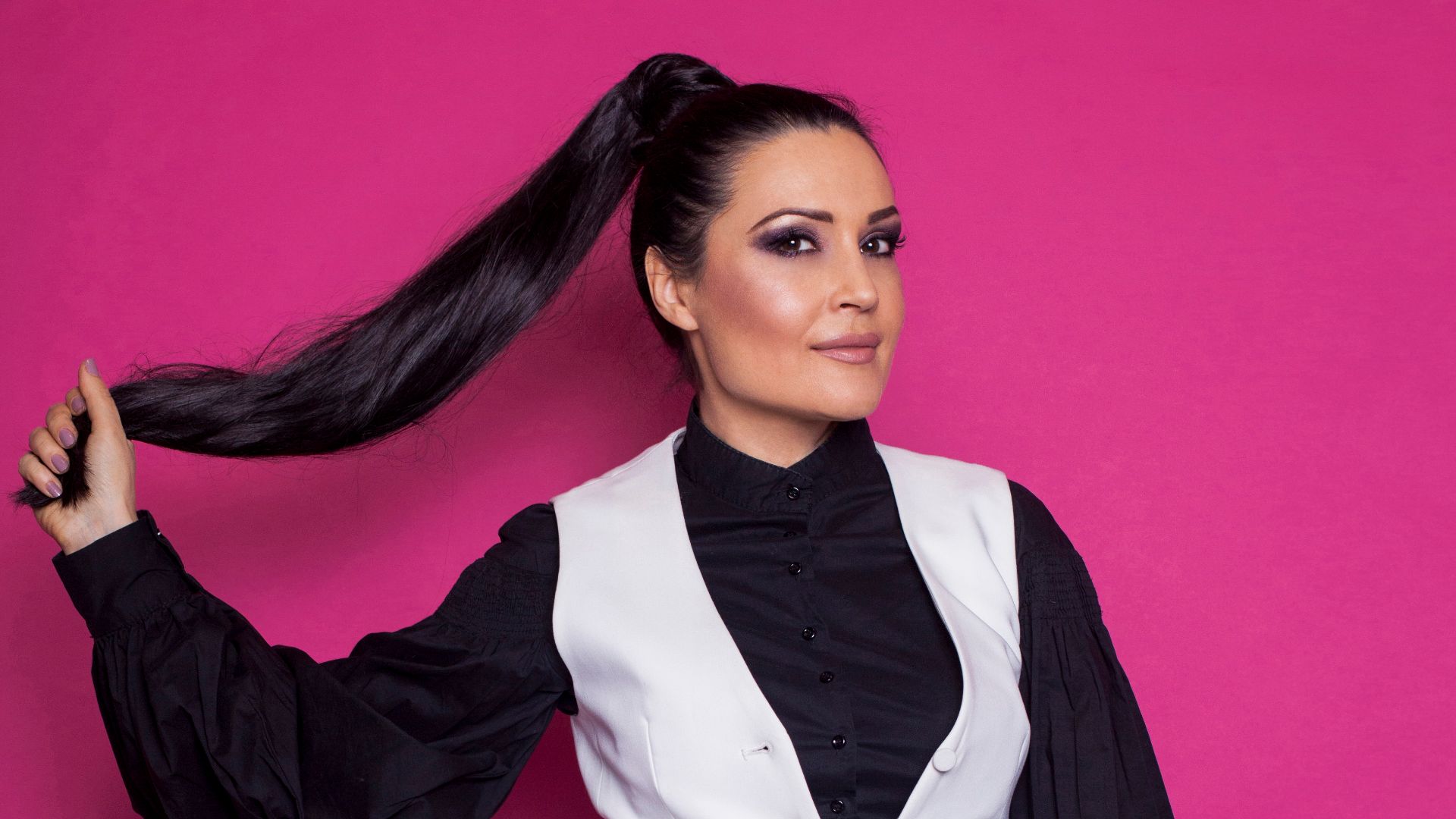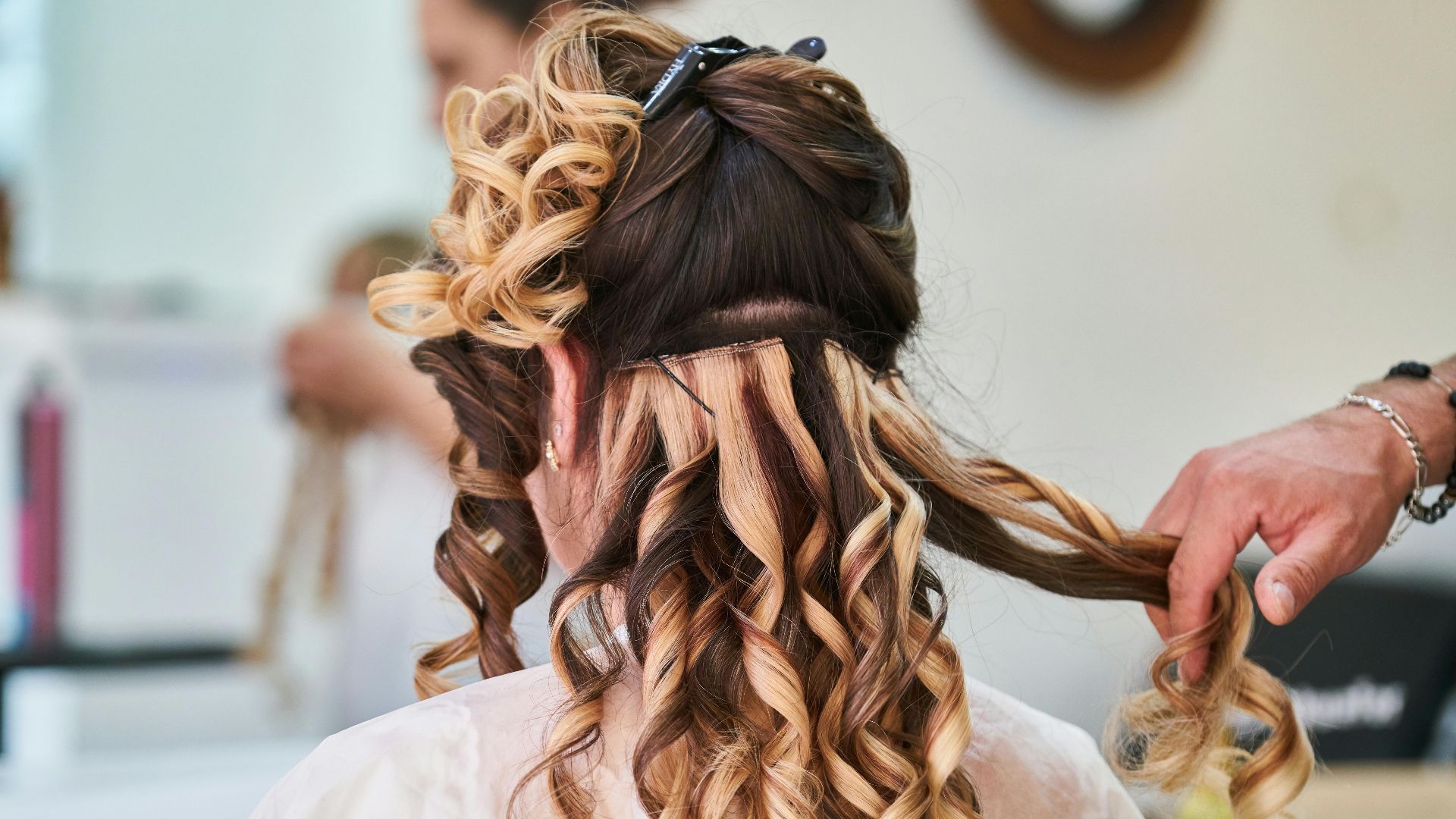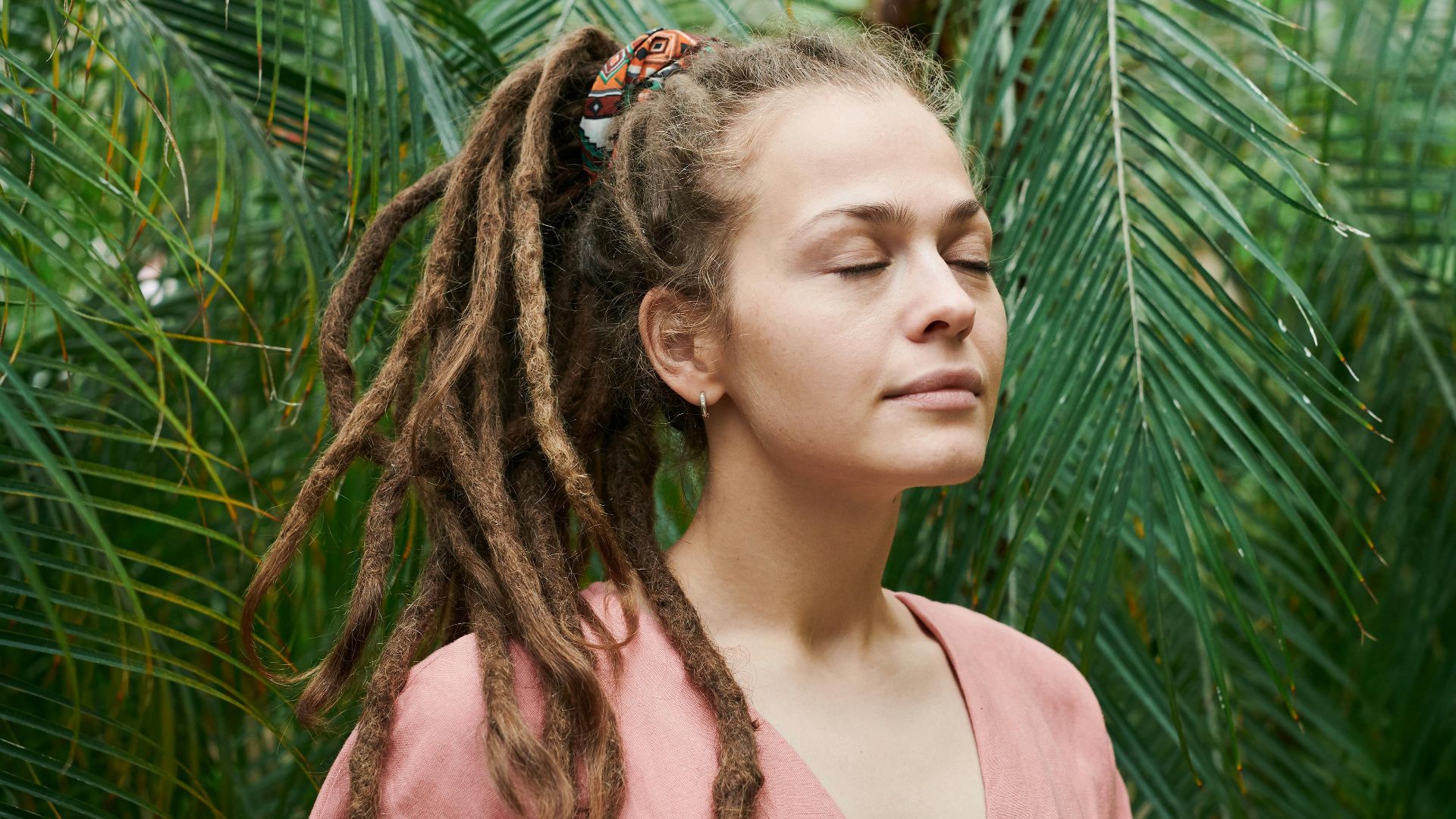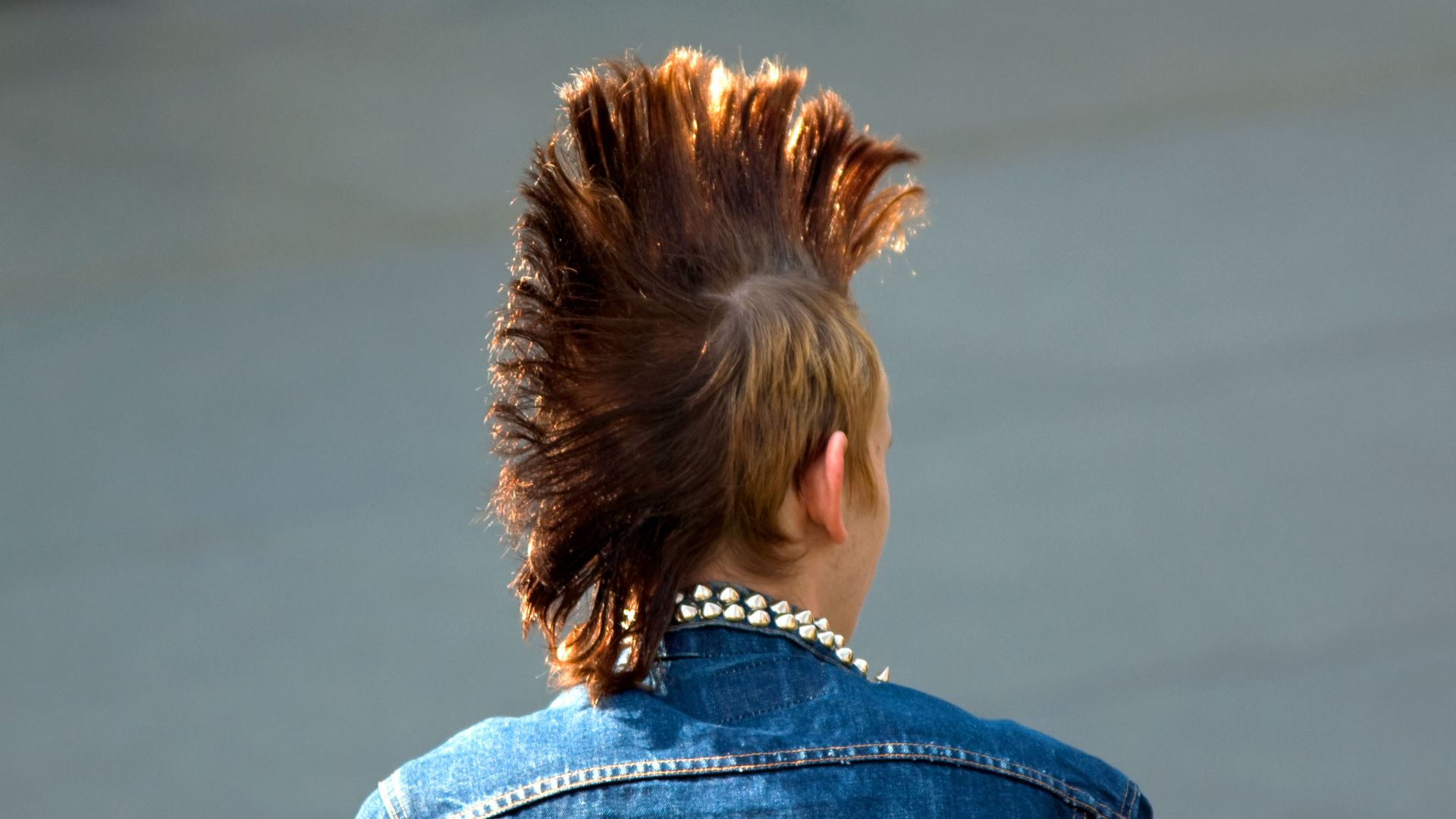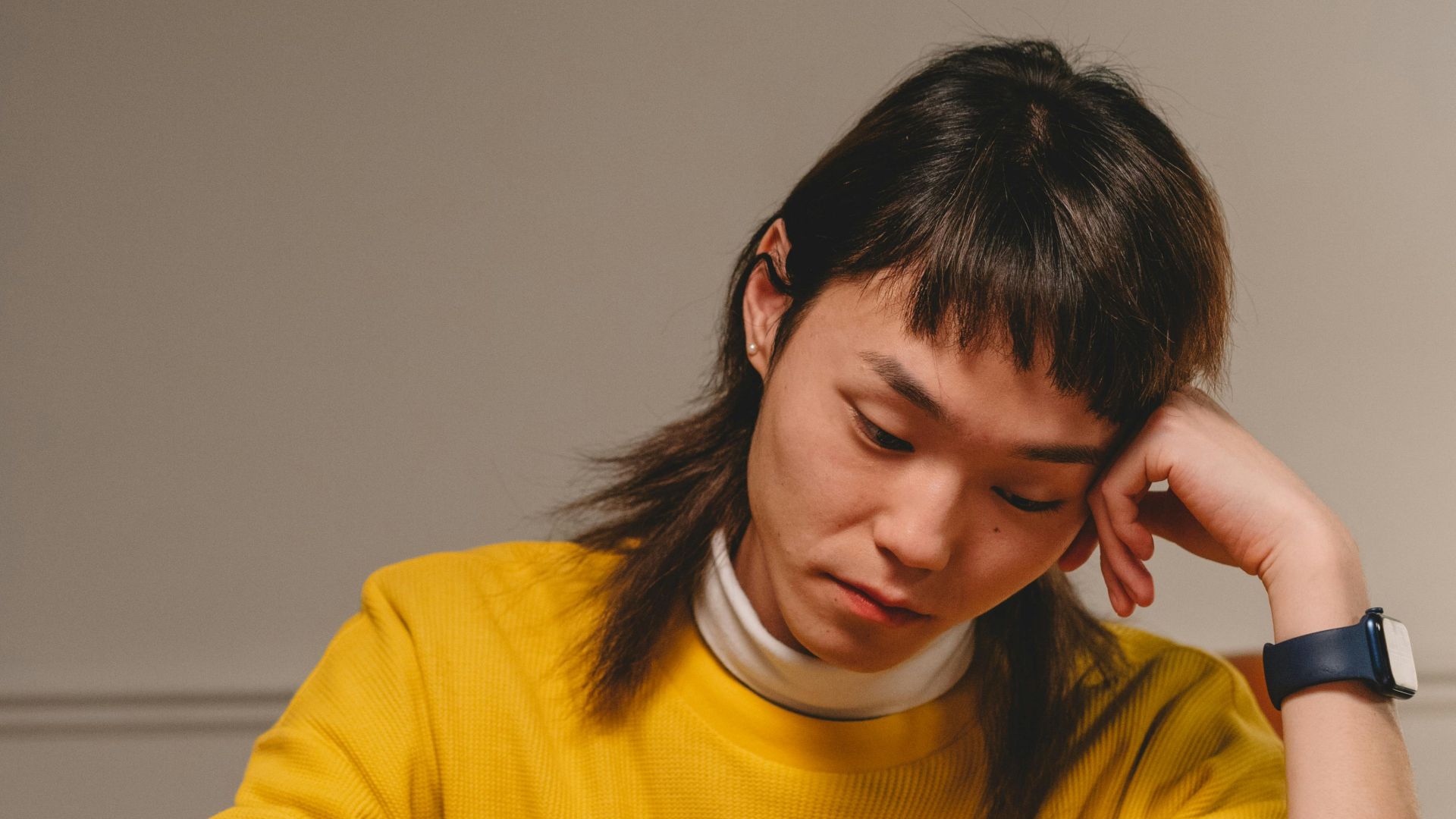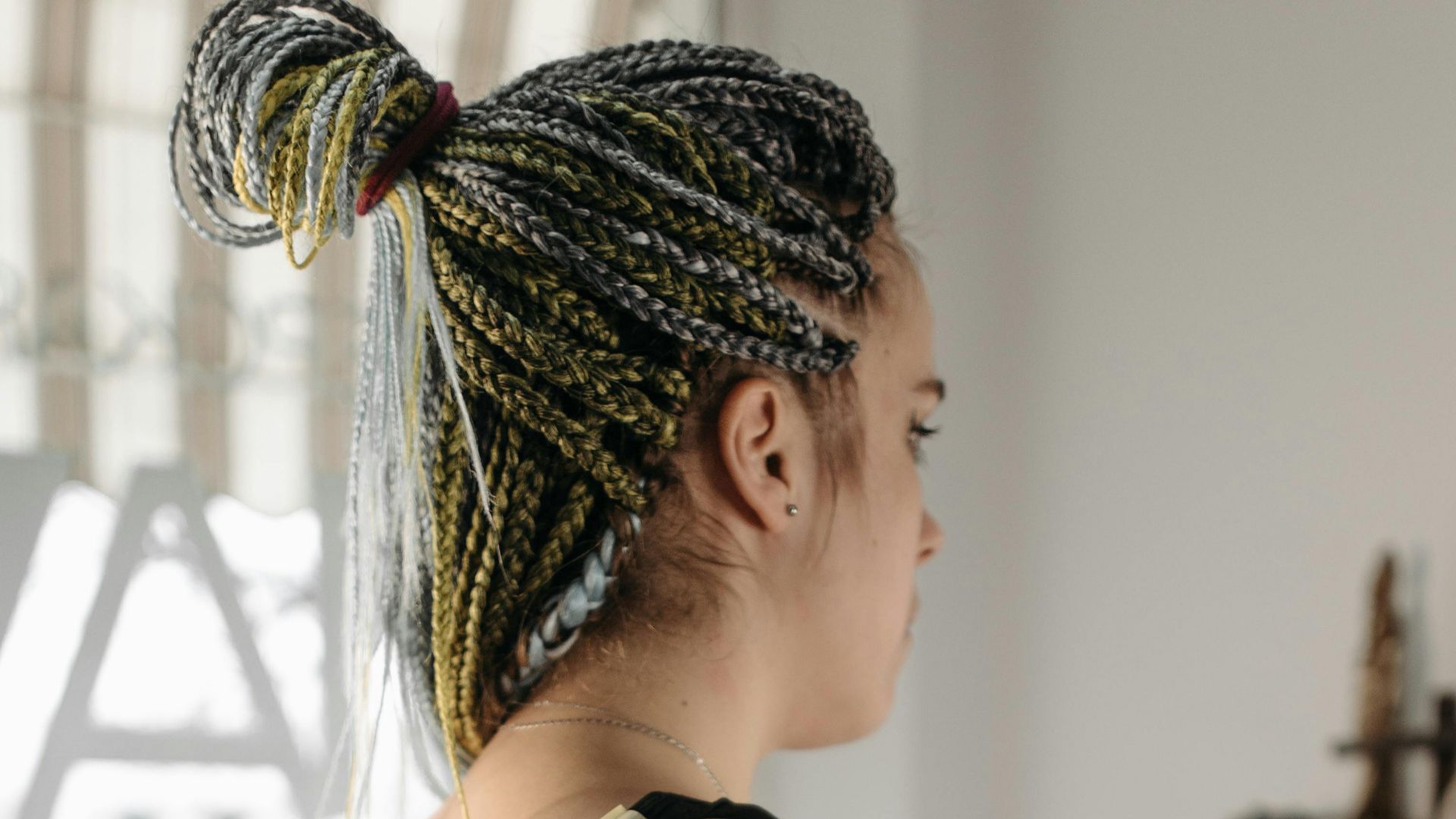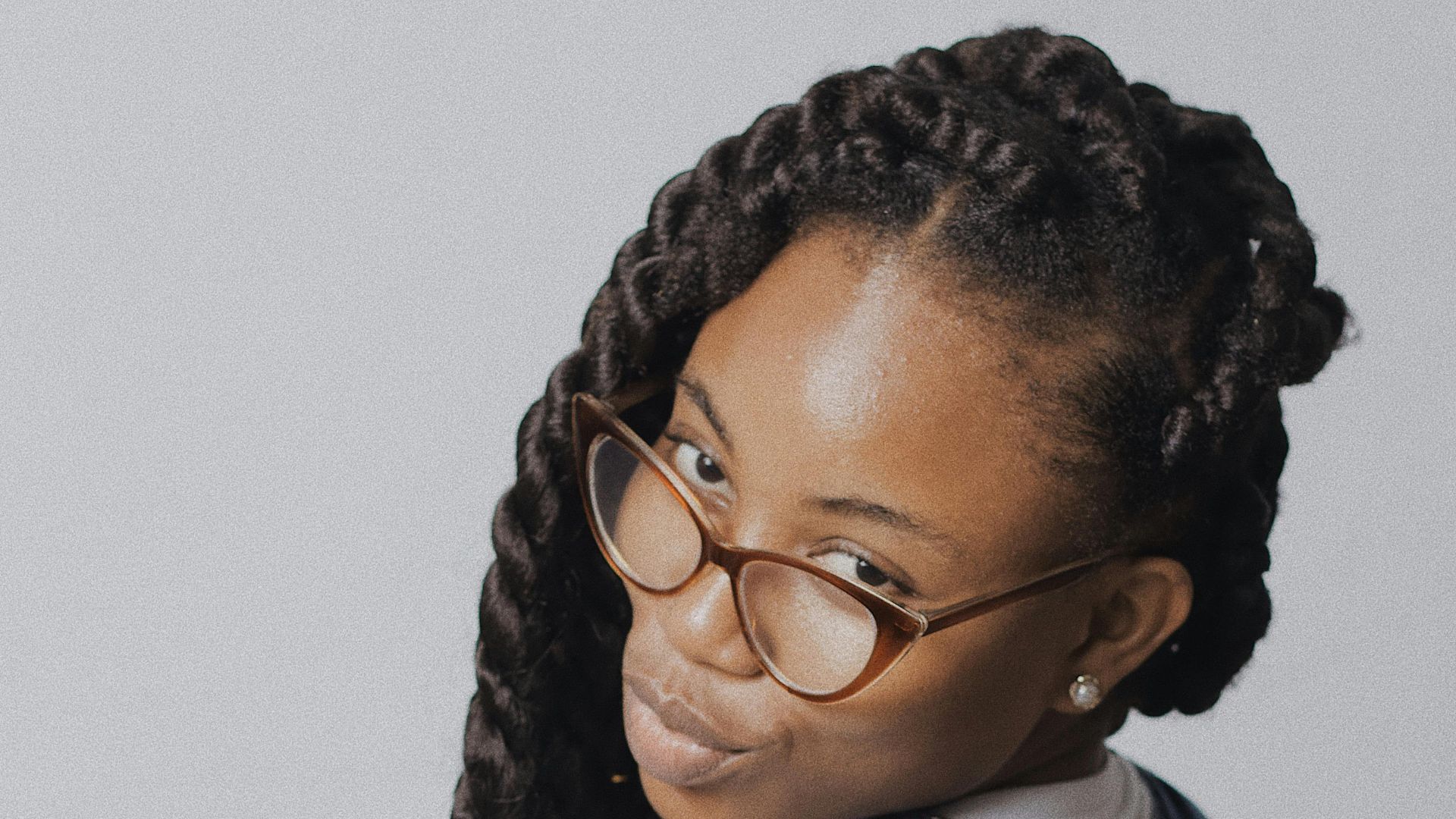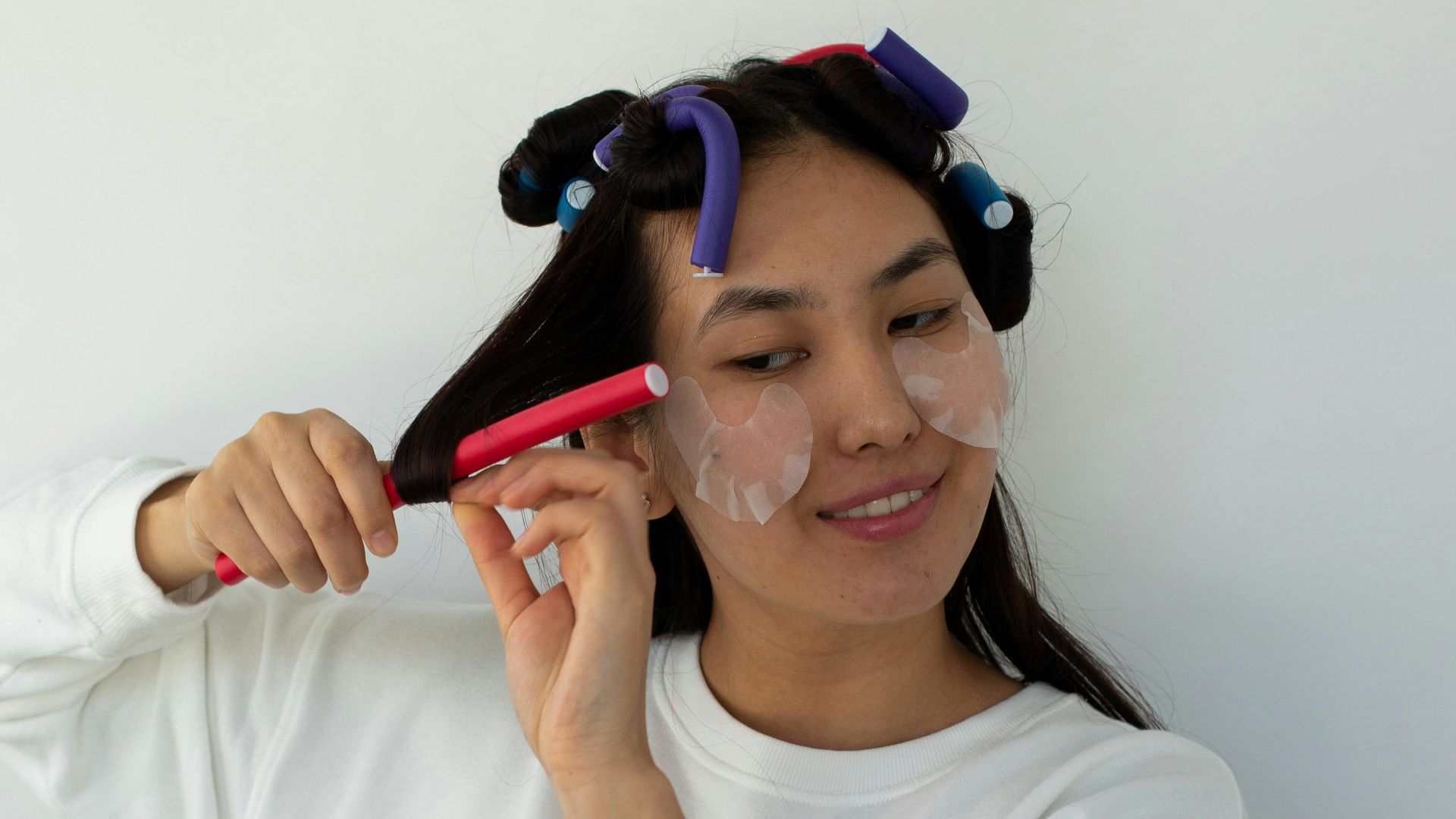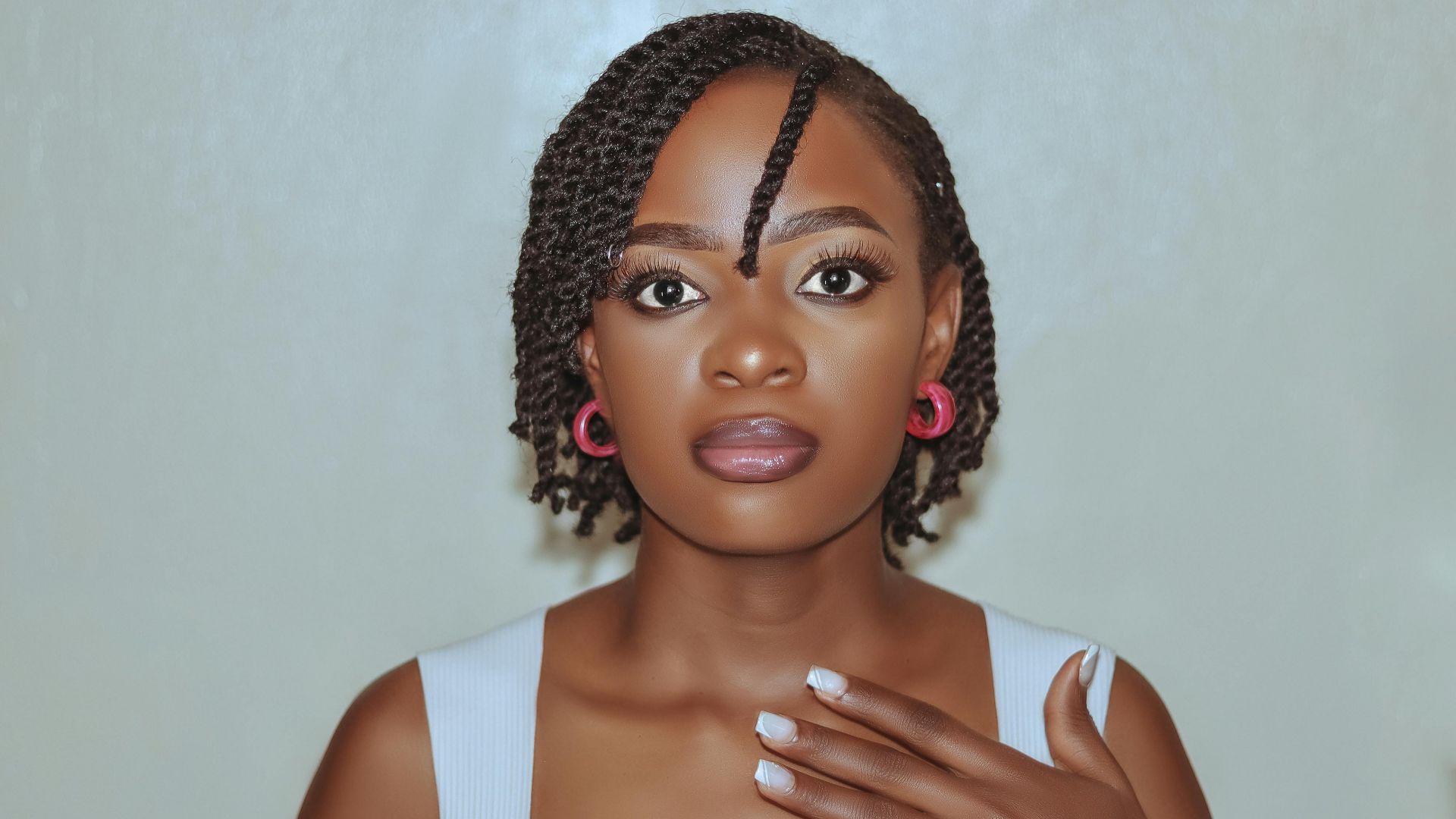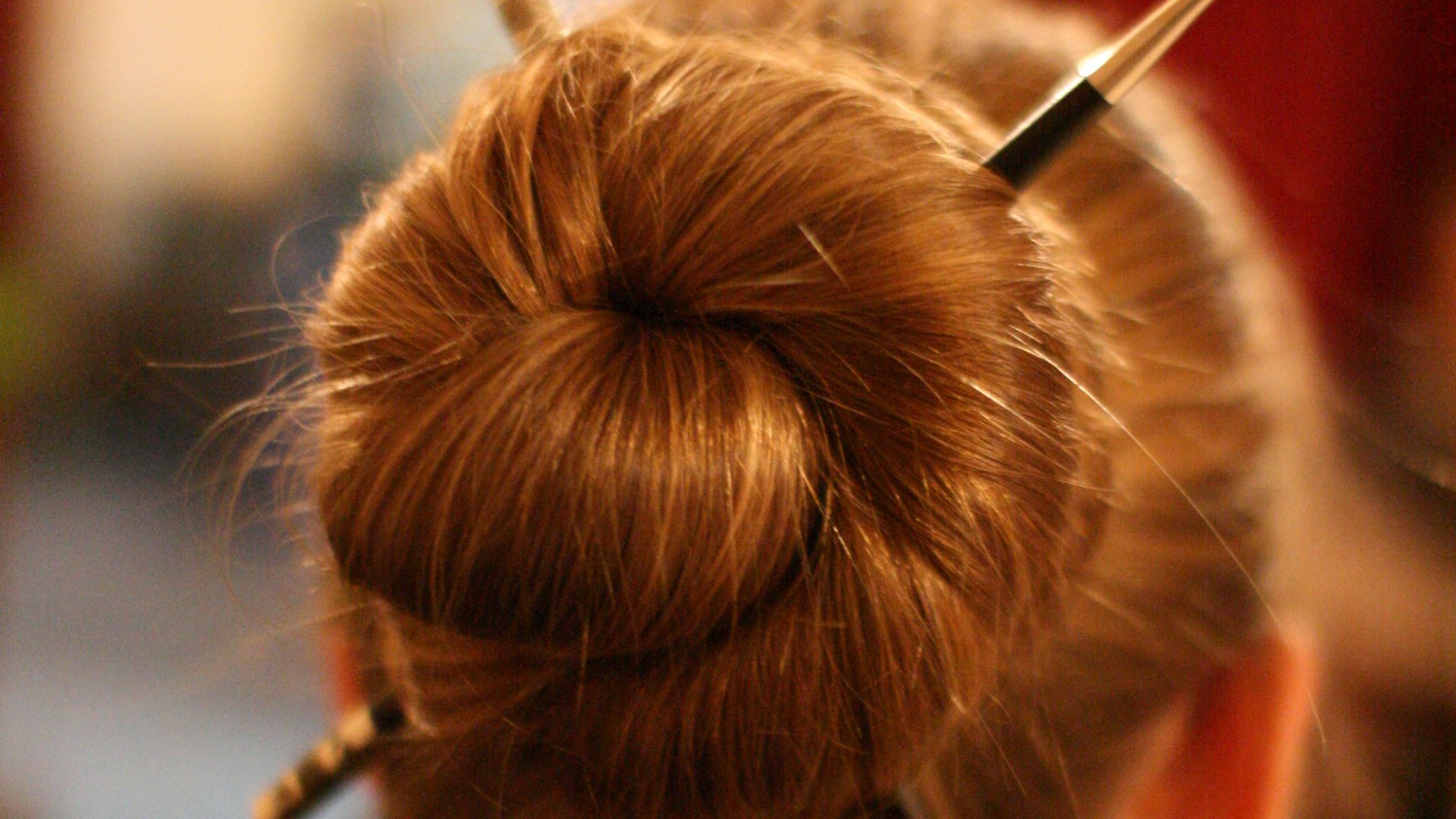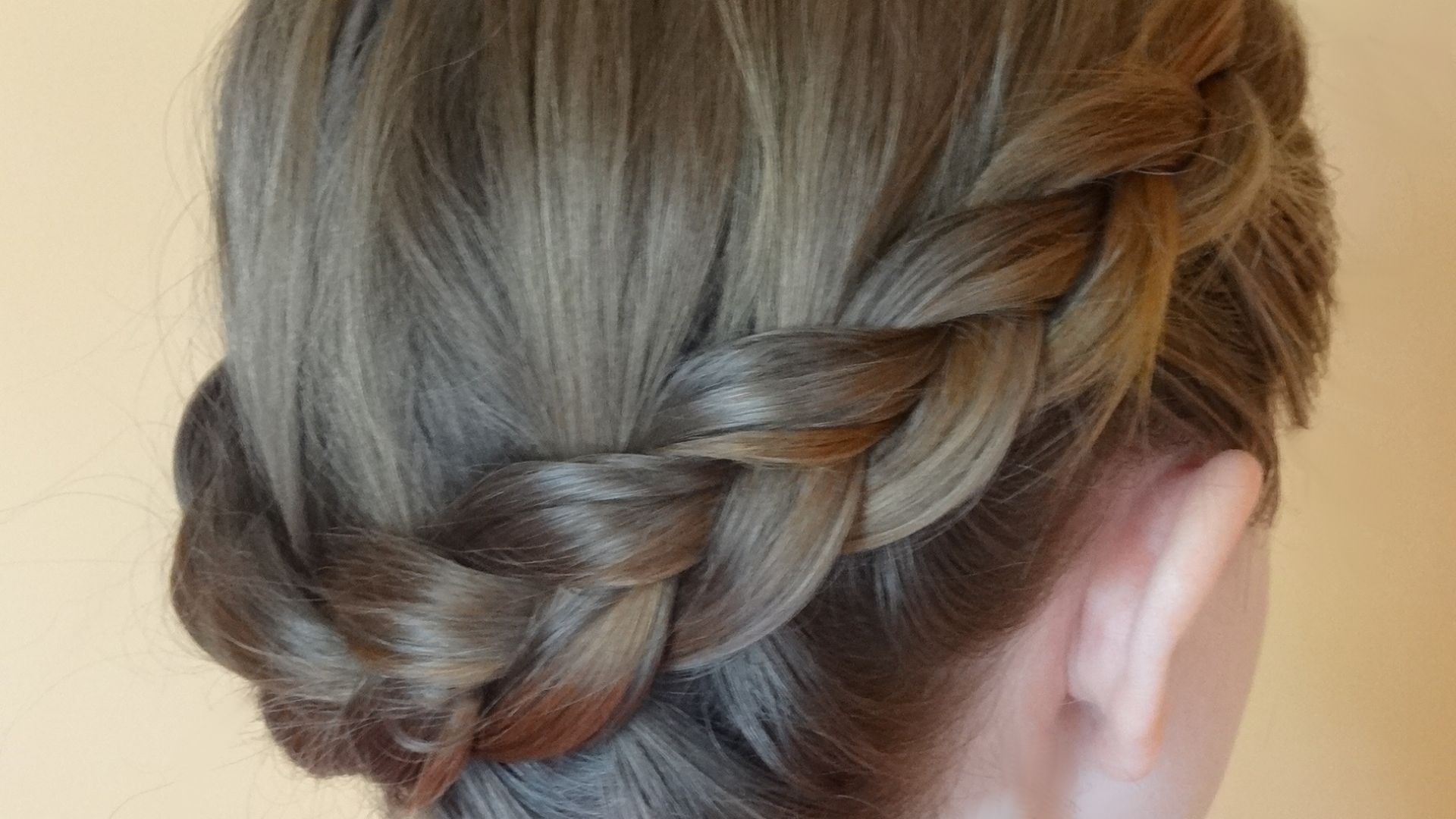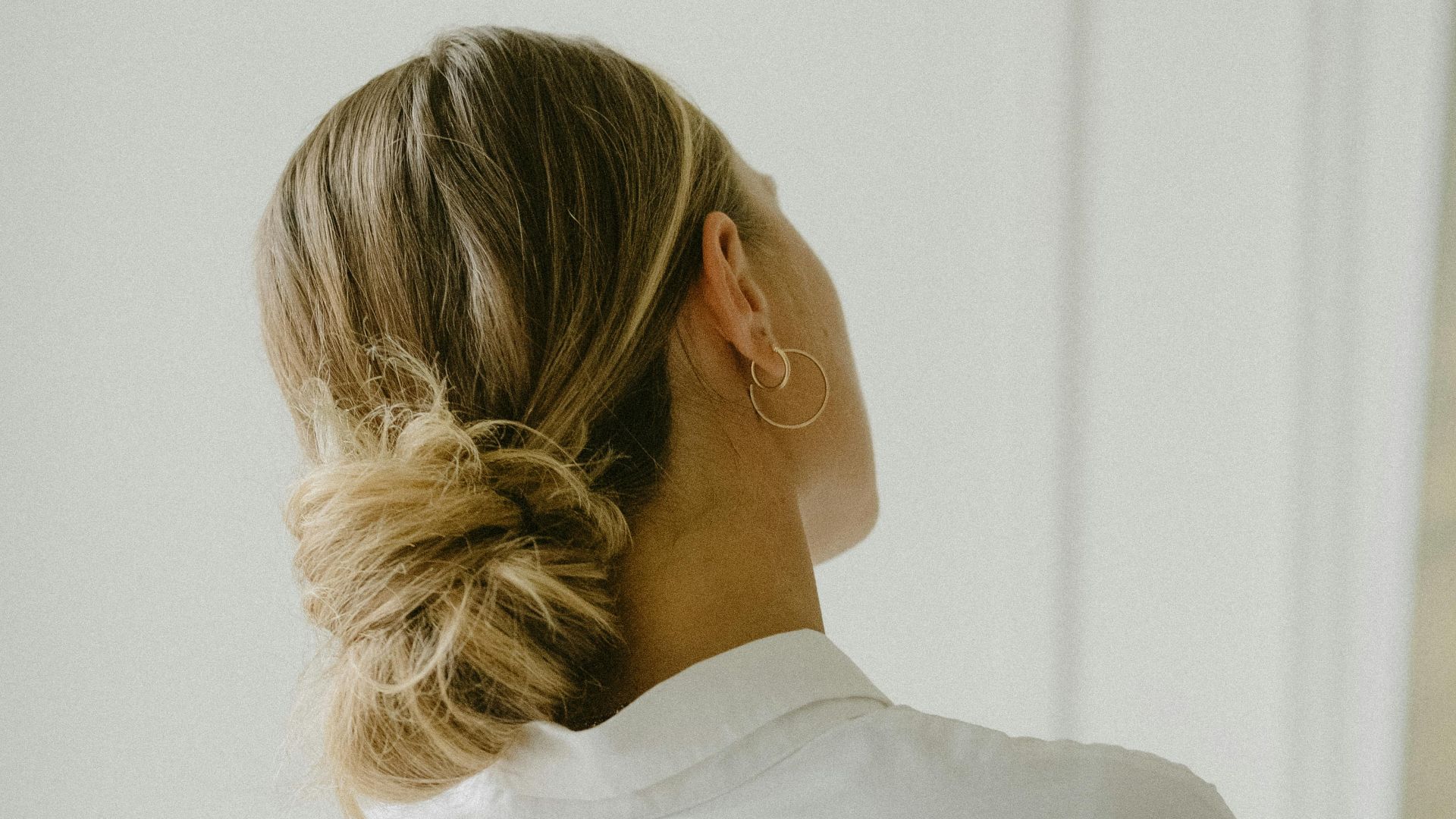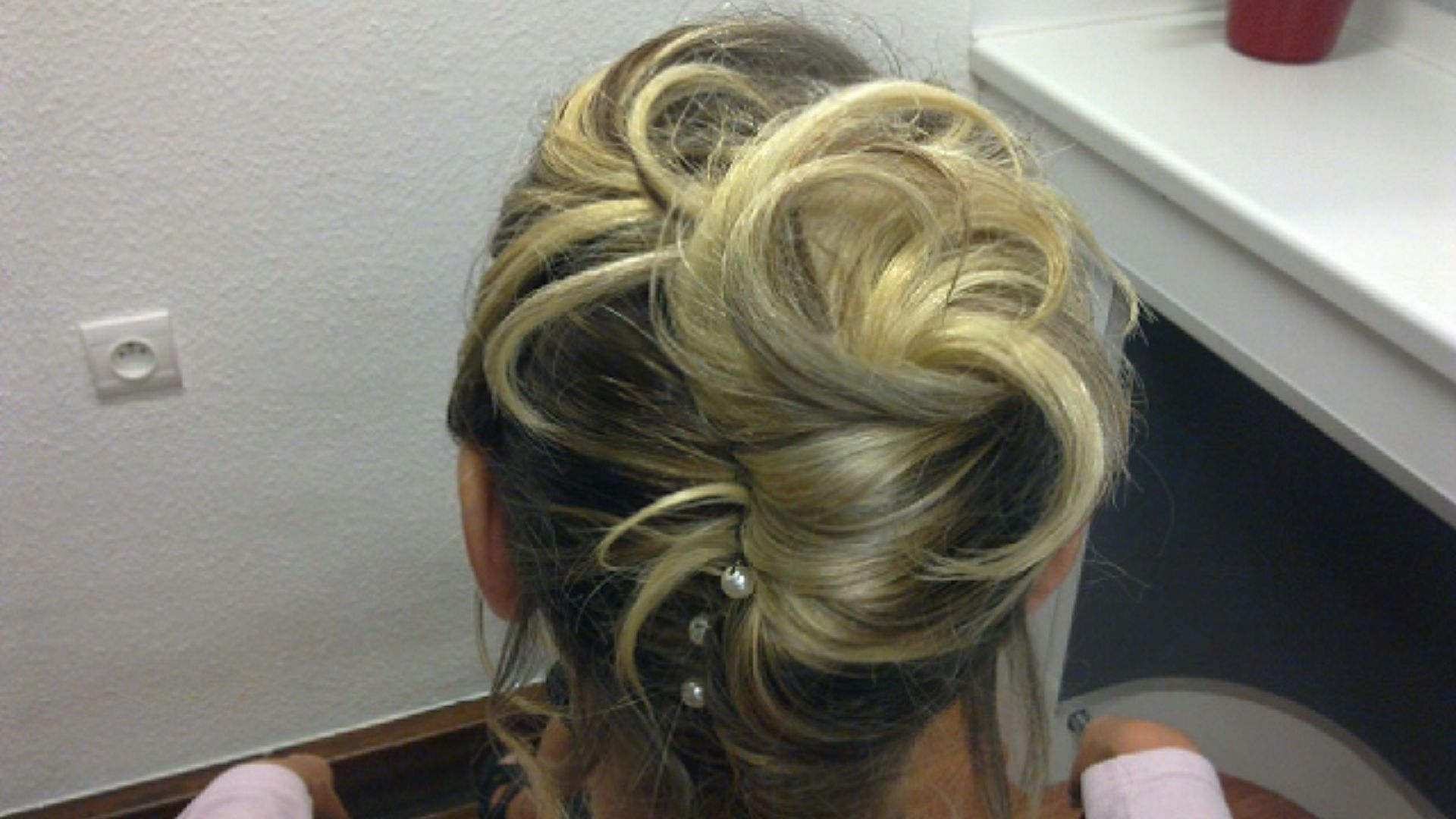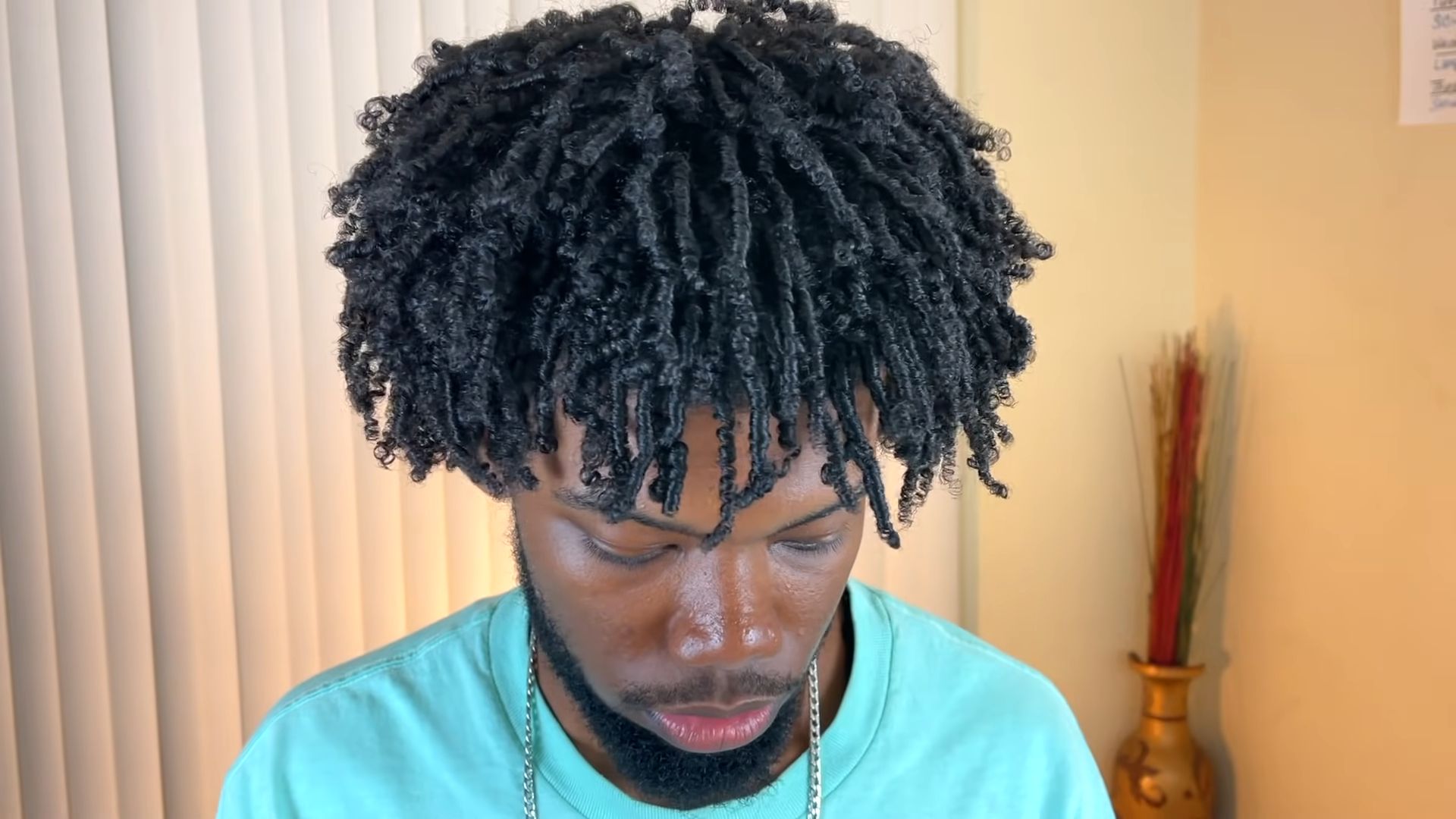Bedtime Looks That Backfire
A lot happens to your hair between lights out and the alarm clock. Some styles give it a break. Others cause slow, silent damage. Knowing which ones help or hurt can make your hair healthier in the long run, so let's go through the most sleep-friendly styles—and the top offenders.
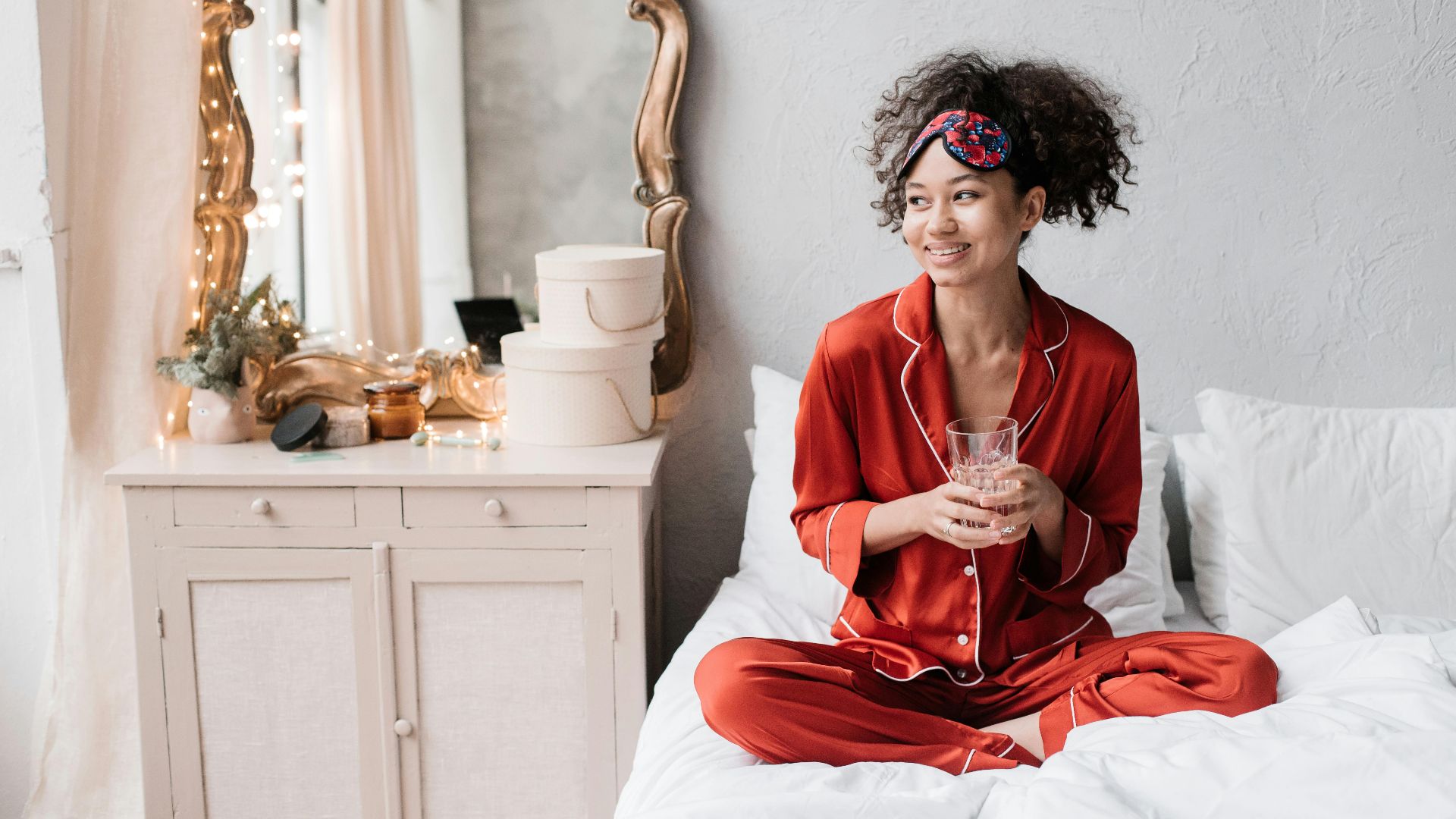 Photo By: Kaboompics.com on Pexels
Photo By: Kaboompics.com on Pexels
1. Ponytail
High-tension styling like ponytails puts your follicles on high alert. Worn high and tight, it creates relentless strain that damages your hairline. Sleep with one, and you’re gambling with breakage near your temples. Secure your hair loosely at the nape instead; your follicles prefer minimal resistance during rest.
2. Cornrows
When tightly installed, cornrows lock in tension that doesn't let up overnight. Tight cornrows can cause traction alopecia if you sleep on them often without breaks. Rotate with low-manipulation styles weekly to give your scalp the recovery time it needs.
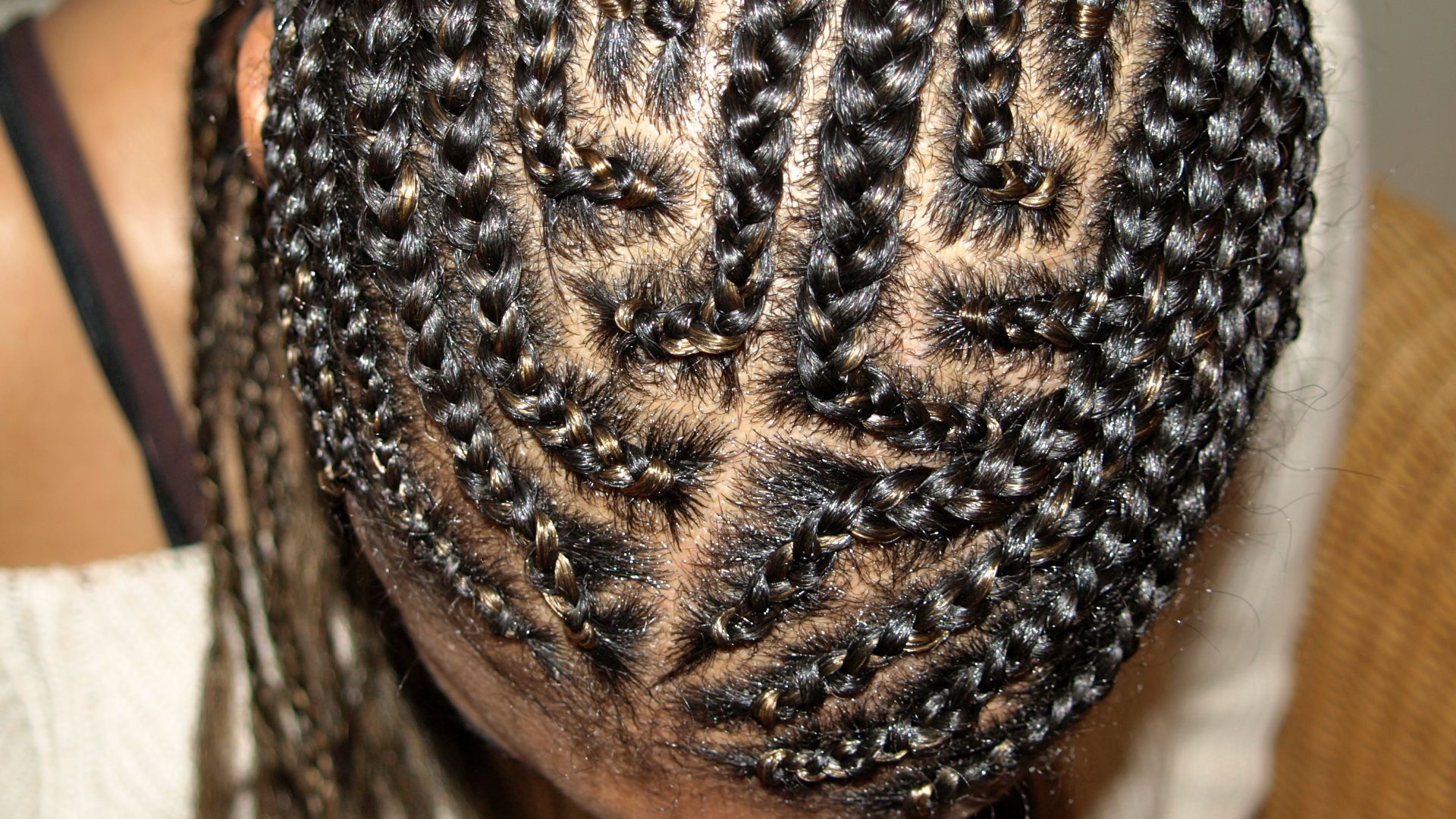 Joanita Hafermalz on Wikimedia
Joanita Hafermalz on Wikimedia
3. Topknot
Stacking hair on the crown may feel tidy, but it causes stress under pressure. While convenient, this style bunches hair on your crown, pressing against pillows all night. You'll wake with bent strands and scalp sensitivity. For healthier mornings, switch to a loose braid before bedtime.
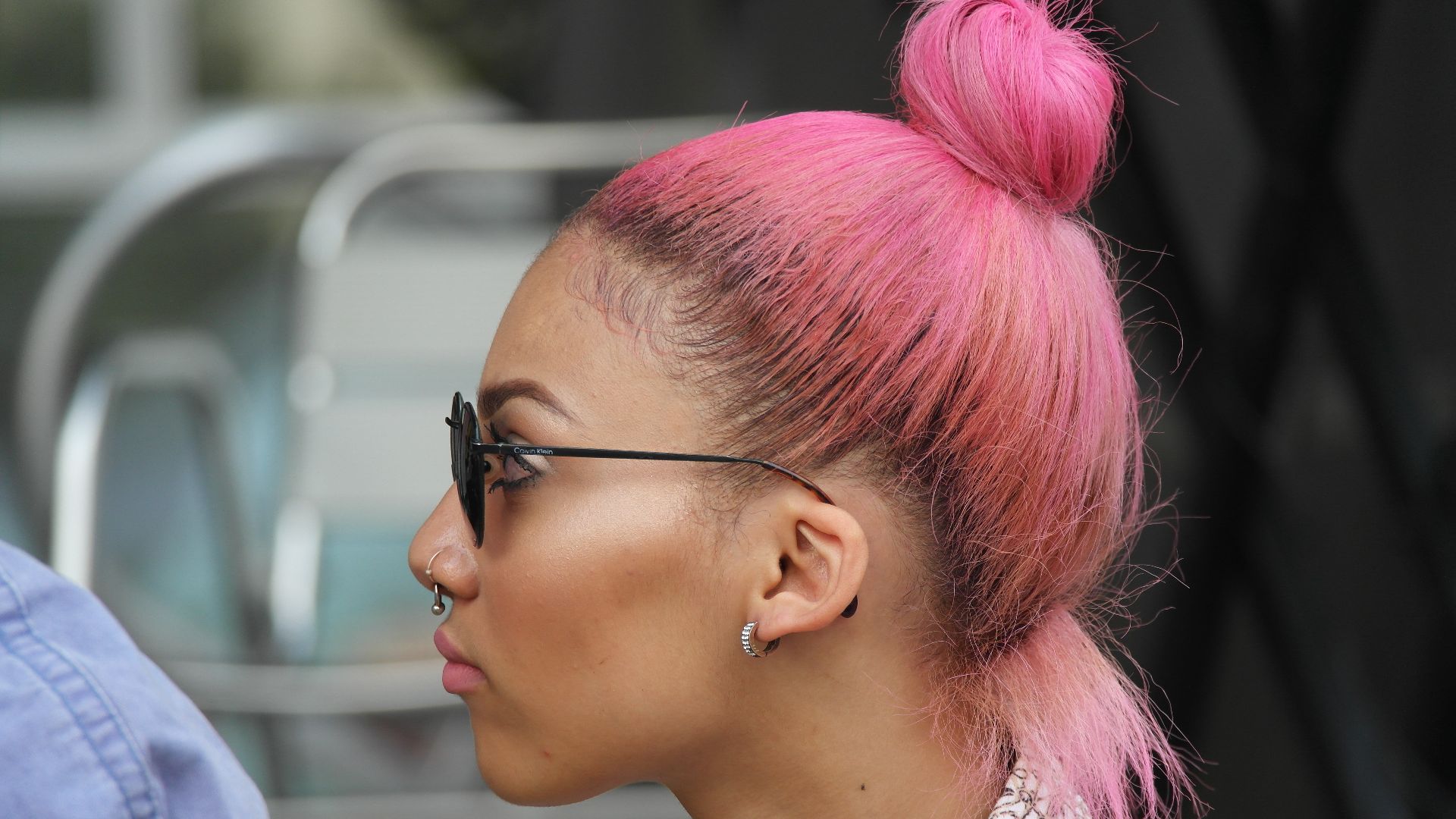 S Pakhrin from DC, USA on Wikimedia
S Pakhrin from DC, USA on Wikimedia
4. Extensions
Length comes at a price when your scalp does the heavy lifting. Extensions—sewn-in or clipped—add weight and increase tugging while you sleep. If they shift as you toss, you risk traction and root inflammation. Stylists recommend nightly wrapping or a silk pillowcase to reduce strain.
5. Teased Hair
Backcombing lifts volume by roughing up cuticles, and that friction doesn't pause at night. Teased styles leave hair tangled like headphone wires—sleep on that, and detangling becomes a battlefield. To avoid damage and snapping, use a detangling mist before brushing in the morning.
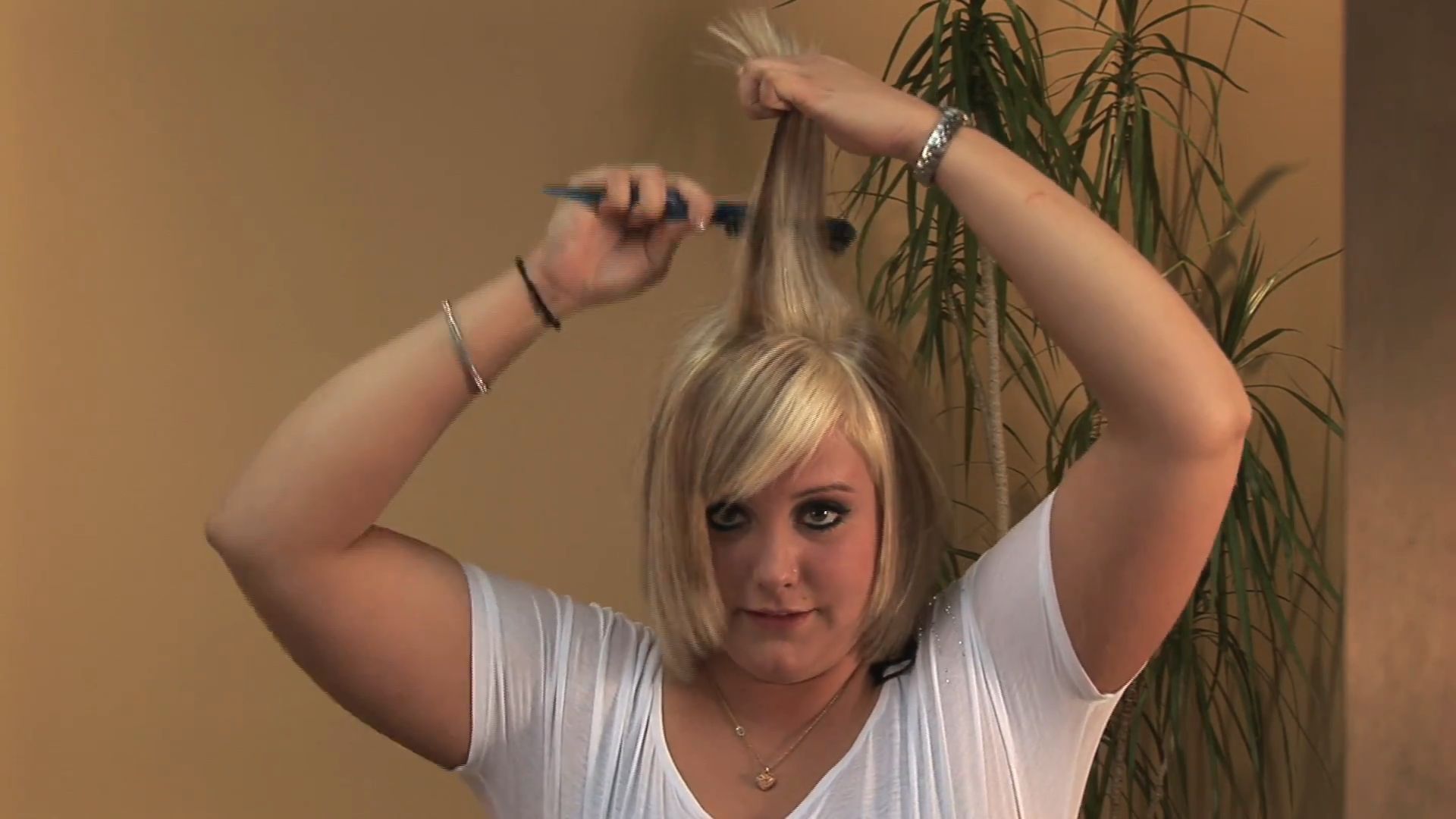 Hair How To: Back Combing Your Hair for Volume by Michaels Salon
Hair How To: Back Combing Your Hair for Volume by Michaels Salon
6. Pompadour
The structure needed to support a pompadour doesn't mix well with pillows. This vintage shape defies gravity by design, but gravity wins by morning. You'll wake up with crushed volume and potentially broken strands. Restyling a collapsed pompadour takes more heat and product—two things your hair doesn't need every morning.
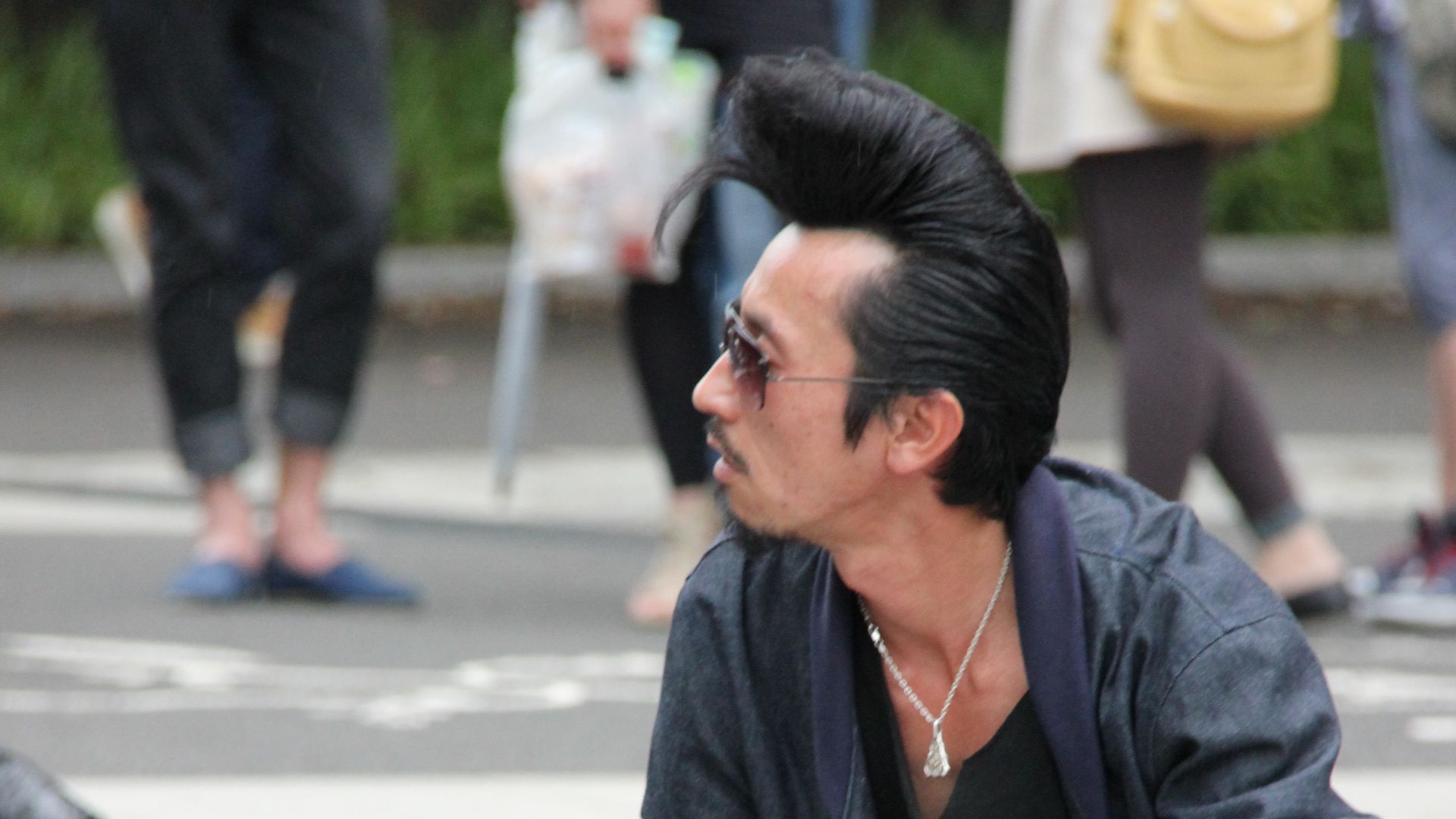 Laika ac from USA on Wikimedia
Laika ac from USA on Wikimedia
7. Dreadlocks
Unprotected locks are especially vulnerable to mechanical damage while you sleep. Without proper wrapping, they rub against fabric and fray at the tips. Think long-term: friction wears down the outer cuticle layer. To prevent this, section your locks and loosely tie them before sleep for structure.
8. Mohawk
Sleeping on high-contrast styles, like mohawks, causes asymmetrical stress. Shaved sides and a tall crest leave no room for comfort, the sides get flattened, and the top bends awkwardly. Over time, this tension at the base can lead to thinning where volume meets skin.
9. Mullet
Length in the back means more movement overnight—and more tangles. Mullets combine short top layers with long tails that rub against the pillow as you turn. You're then left with mid-shaft breakage and uneven shedding. If you wear one, secure the back loosely to minimize damage.
10. Afro
Coils in a dense shape are beautiful but delicate during sleep. Left exposed, they lose definition and trap friction. You'll also notice breakage at the crown and ends. Moisturize before bed and consider separating into large twists to help retain structure overnight.
 Jorge Fakhouri Filho on Pexels
Jorge Fakhouri Filho on Pexels
Enough of the bad news. Let's talk about the styles that give your hair a break while you get one.
1. Solid Braid
Tucking hair into a braid keeps strands aligned and friction low. This style also reduces split ends, especially if your hair is long or fine, so secure it loosely to avoid tension. Braiding also helps preserve straight styles or curls without relying on heat the next day.
2. Twist
Quick to do and gentle on the scalp, twists are a go-to protective style. They separate hair into structured sections, reducing tangling and stretching curls overnight. Great for all textures, especially natural hair, twists deliver when you want defined waves in the morning.
3. Pineapple
Gathering curls at the top of your head helps maintain volume and shape. This method works best for medium to long curls that flatten easily during sleep; the loose placement minimizes tension and preserves definition. Use a silk scrunchie to avoid dents or friction spots.
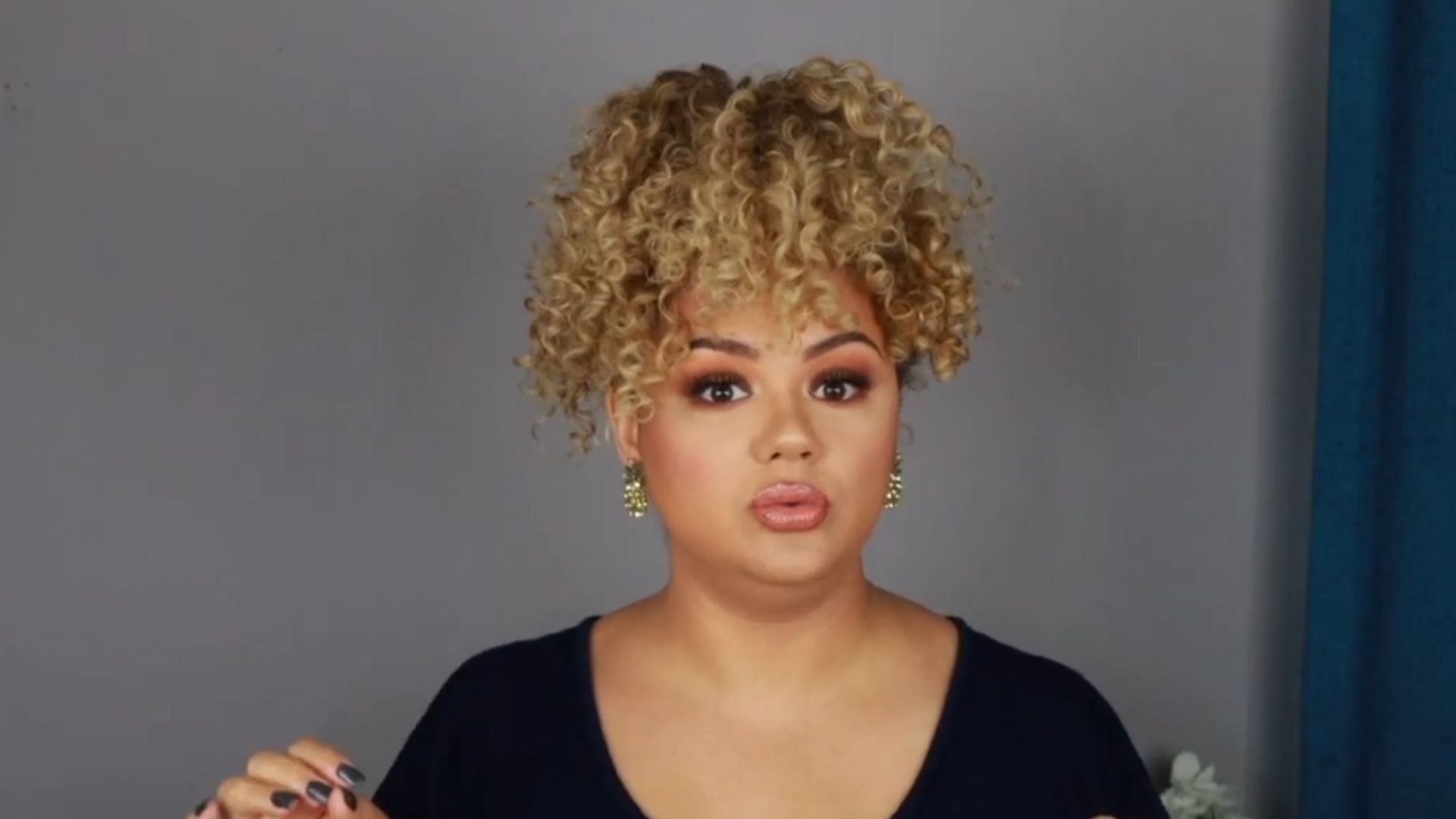 CURLY HAIR PINEAPPLE 101 by Jenny Borrego
CURLY HAIR PINEAPPLE 101 by Jenny Borrego
4. Roller Set
Setting hair in rollers before sleep keeps your style intact and full of bounce (foam or flexi rods offer curling without heat damage). Just make sure sections are fully dry and not pulled too tight—otherwise, you risk root stress. Do it right and you'll wake up to smooth results.
5. Flat Twist
Similar to braiding but quicker to install, flat twists lie close to the scalp. They reduce friction, help retain moisture, and stretch out curls naturally. If you want even definition and easy mornings, flat twists make that happen in two steps.
6. Chignon
The chignon keeps hair compact and protected overnight, which makes it ideal for medium to long lengths. So long as you keep it low and loose near the nape, it prevents tangling without pulling at the roots. For volume control and breakage prevention, this classic delivers.
7. Halo Braid
Wrapping your hair around the crown in a halo braid distributes tension evenly across the scalp. This not only prevents breakage but also avoids pressure points while you sleep. It's perfect for thicker textures and keeps strands aligned.
8. Low Bun
Positioned at the nape, a low bun limits pressure points and allows you to sleep comfortably on your back. It also helps manage volume while preserving your style. Avoid rubber bands, though, and use soft fabric ties instead.
9. French Roll
This vintage updo tucks hair inward, away from friction zones. By keeping ends hidden, it reduces breakage and surface rubbing, so you enjoy elegance and overnight hair preservation. Make it loose enough to avoid tension, but tight enough to hold.
10. Coils
Defined coils lock in structure and minimize friction during sleep. This style suits tightly textured hair, especially when hydrated and freshly styled. Sleeping on coils also helps preserve the curl pattern and avoid overnight shrinkage. However, hydration is key, so apply products evenly.


